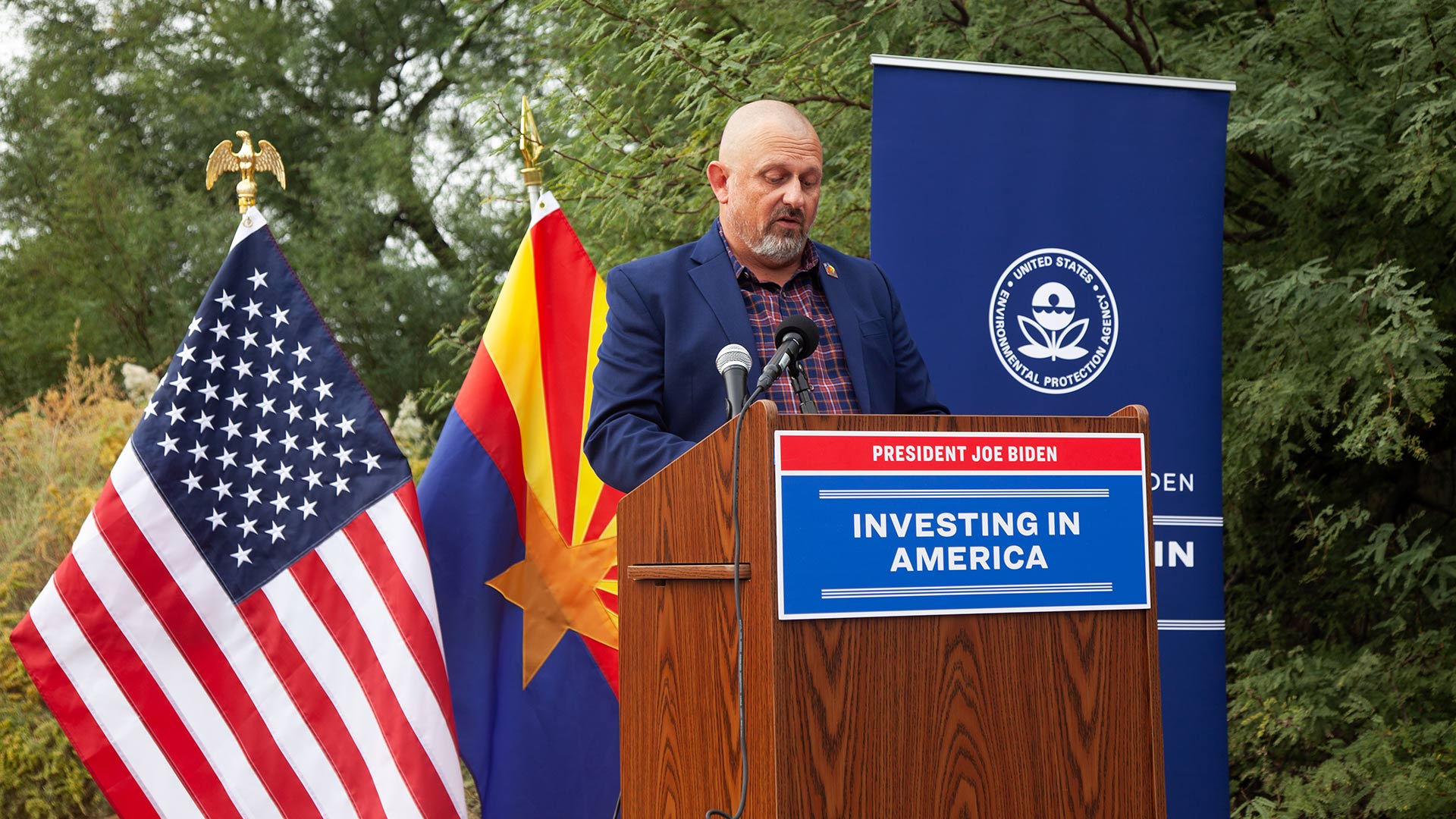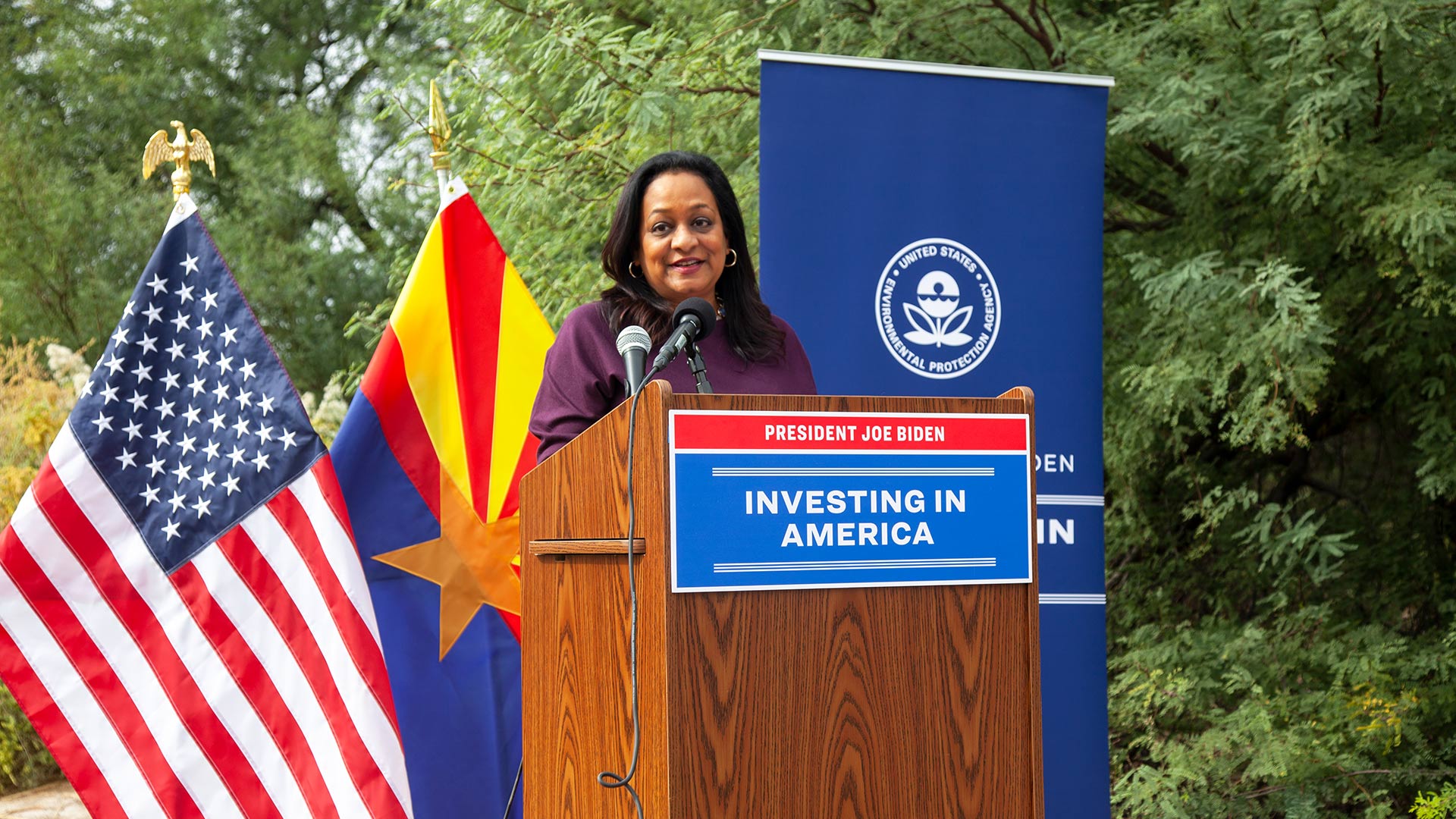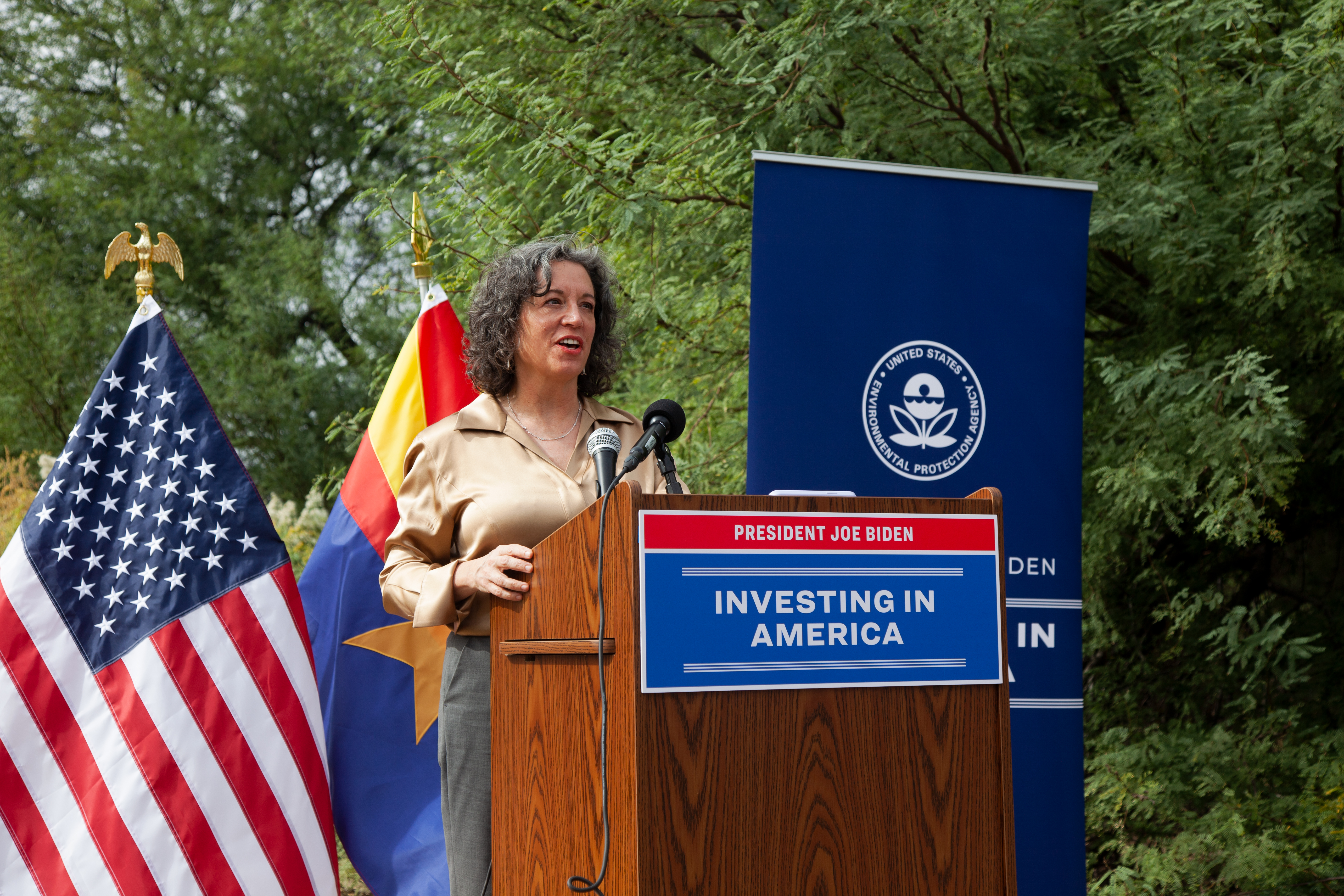 John Kmiec, director of Tucson Water at the Sweetwater Wetlands Park in Tucson, Ariz., on Thursday, Nov. 16, 2023. Kmiec says that the water that flows through the wetlands is highly treated water from the Pima County Agua Nueva facility that gos into the aquifer for future generations.
John Kmiec, director of Tucson Water at the Sweetwater Wetlands Park in Tucson, Ariz., on Thursday, Nov. 16, 2023. Kmiec says that the water that flows through the wetlands is highly treated water from the Pima County Agua Nueva facility that gos into the aquifer for future generations.
Local and regional water leaders gathered at the Sweetwater Wetlands Park in Tucson, on Thursday, Nov. 16, to celebrate investments made into the city’s water infrastructure.
This week, the Environmental Protection Agency (EPA) announced a $30 million investment to combat existing and emerging contaminants in Tucson’s aquifer known as per-and polyfluorinated substances or, PFAS.
Thanks to funding from the Bipartisan Infrastructure Law (BIL), Tucson Water will build a second drinking water treatment facility for residents in the northwest side of Tucson and southern Marana,
John Kmiec, Director of Tucson Water said the investment will bring back three out of 28 wells that Tucson Water had previously shut off three years ago.
“By having those wells come back into the Tucson Water portfolio, through advanced treatment we’ll be able to recover 3.7 million gallons a day of potable drinking water that then can be returned to the northwest side of Tucson,” Kmiec said.
The plan is estimated at $33 million dollars, however, a little over $10 million of the estimated price tag is considered a “forgivable principal.”
“That’s where the Bipartisan Infrastructure Act money is essentially paying about one third of the cost for this treatment plant by not having that portion of the loan attributable to the city of Tucson, it’s being paid in advance,” Kmiec said.
Radhika Fox, the EPA's assistant administrator for water, said the federal agency is focused on resources to help remediate PFAS contamination and holding polluters accountable.
“In just a few months we will also be finalizing the first national drinking water standard for PFAS,” Fox said.
In March, the EPA proposed the National Primary Drinking Water Regulation (NPDWR) to establish a Maximum Contaminant Level (MCL) for six PFAS.
“In the last two years, we’ve put about $13 billion to our state partners, funding about 2,600 local water projects just like this all around the country,” Fox said.
 VIEW LARGER U.S. EPA Assistant Administrator for Water, Radhika Fox at the Sweetwater Wetlands Park in Tucson, Ariz., on Thursday, Nov. 16.
VIEW LARGER U.S. EPA Assistant Administrator for Water, Radhika Fox at the Sweetwater Wetlands Park in Tucson, Ariz., on Thursday, Nov. 16. While there is no federal regulation against forever chemicals, Karen Peters, CEO and Director of the Arizona Department of Environmental Quality (ADEQ), said the adverse effects on human health and the environment have been well documented.
“Our focus today has been on protecting the quality of Arizona’s drinking water supplies, working with regulated public water systems and keeping communities informed here in Tucson, the state of Arizona and ADEQ,” Peters said.
The agency has sampled groundwater paths across the region to help determine the extent of PFAS contamination and eliminate direct impacts through private drinking water wells.
“While much progress has been made to mitigate the impacts of PFAS in Tucson and across the state, we know that this work is far from over,” Peters said. “The state of Arizona and ADEQ are committed to continuing this work with our federal and local partners to sustain the well-being and the economic vitality of the region today and for future generations.”
 VIEW LARGER CEO and director of the Arizona Department of Environmental Quality, Karen Peters at the Sweetwater Wetlands Park in Tucson, Ariz., on Thursday, Nov. 16, 2023.
VIEW LARGER CEO and director of the Arizona Department of Environmental Quality, Karen Peters at the Sweetwater Wetlands Park in Tucson, Ariz., on Thursday, Nov. 16, 2023. 
By submitting your comments, you hereby give AZPM the right to post your comments and potentially use them in any other form of media operated by this institution.